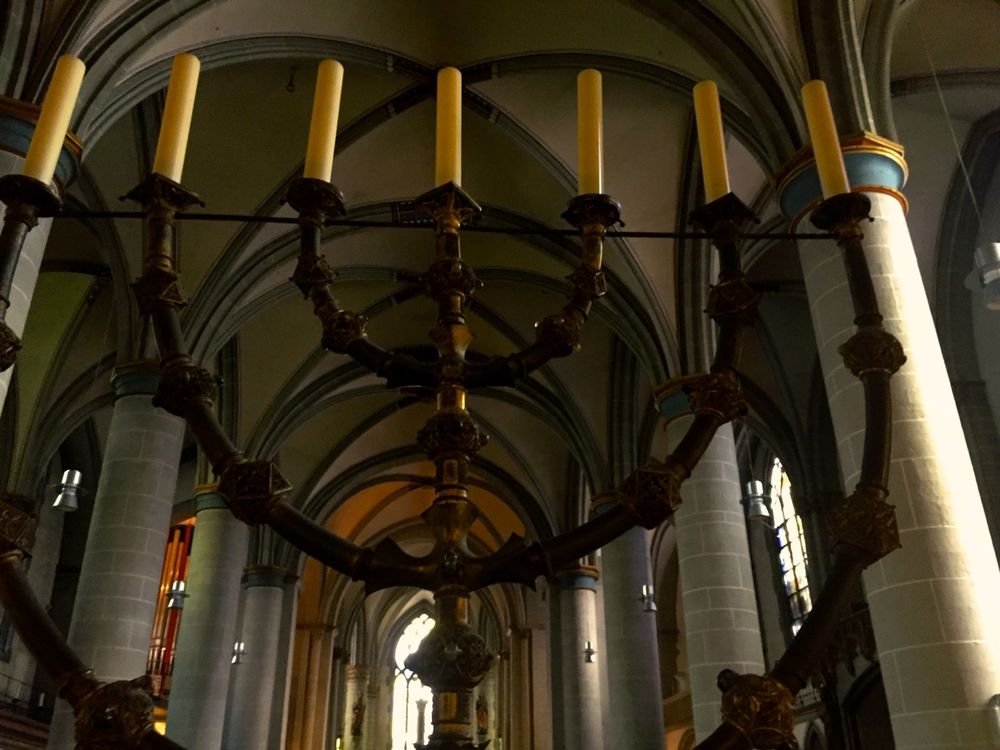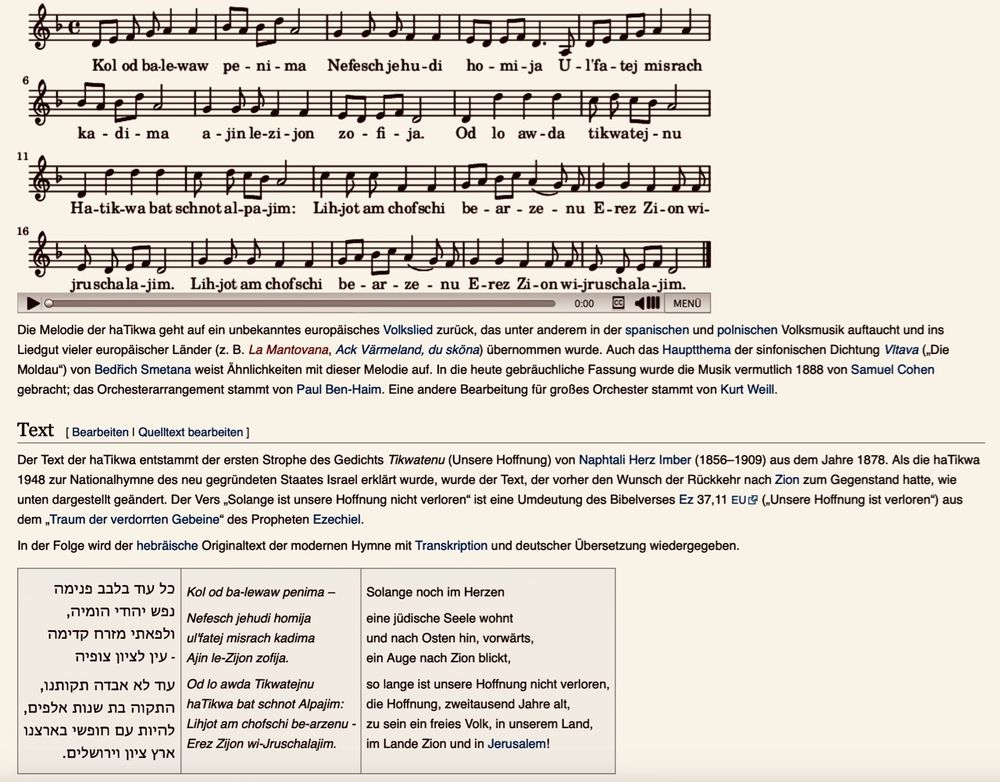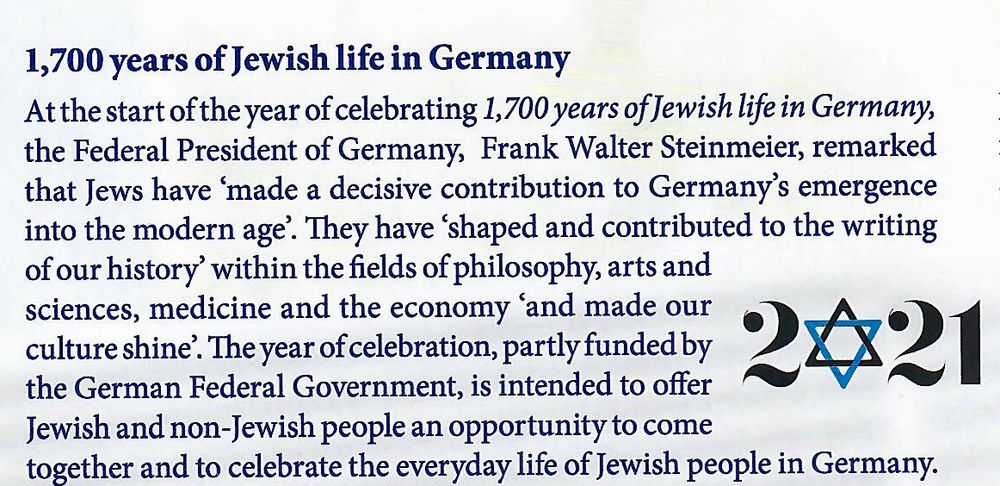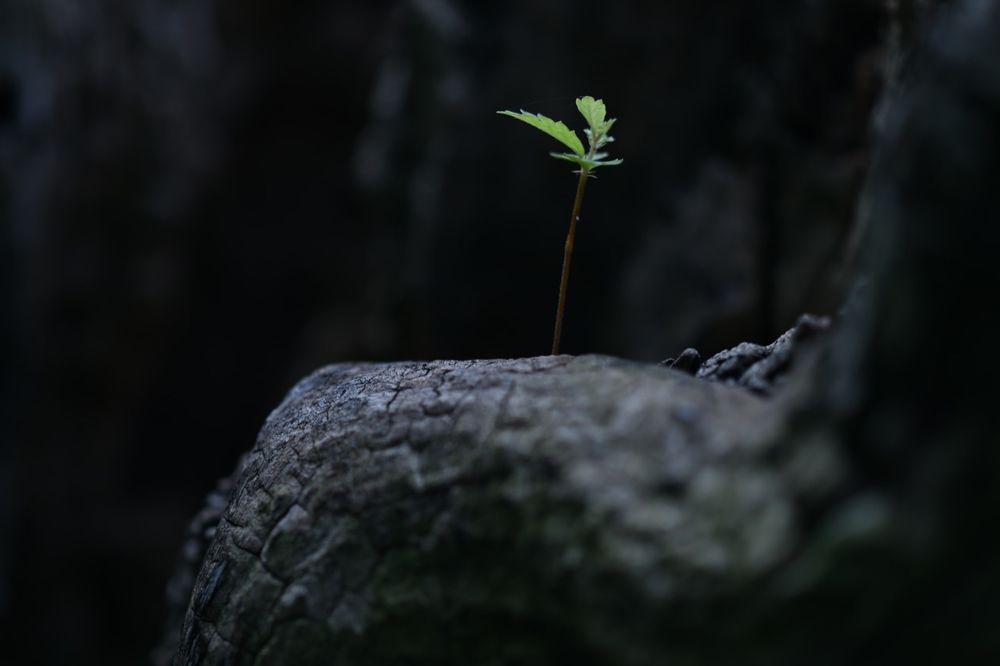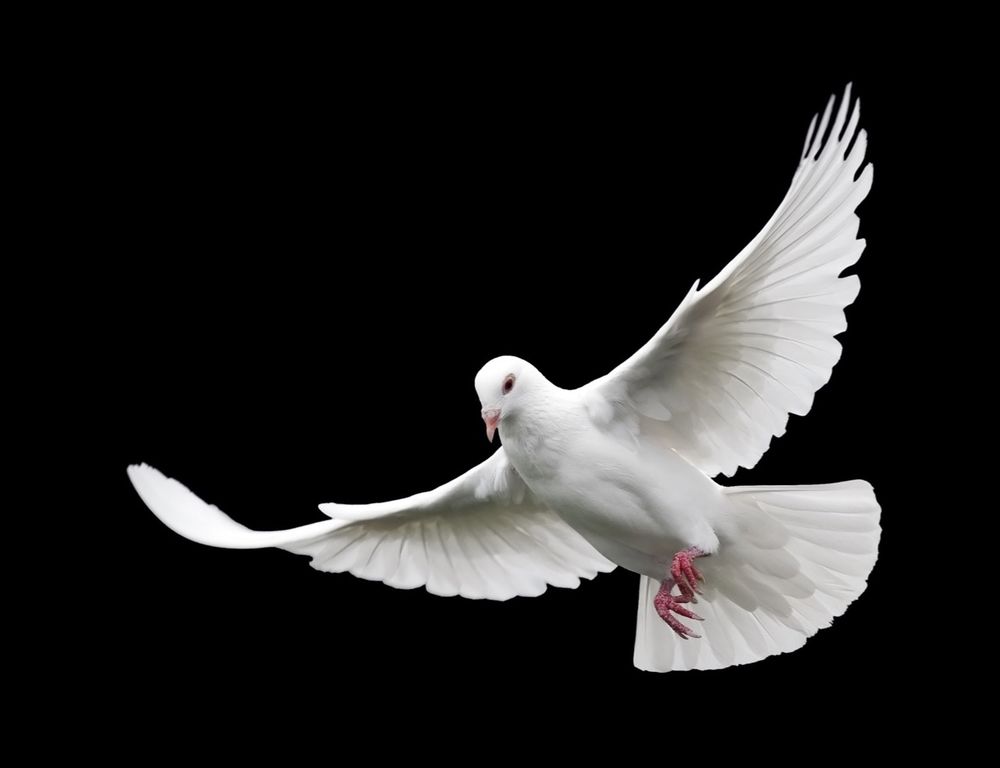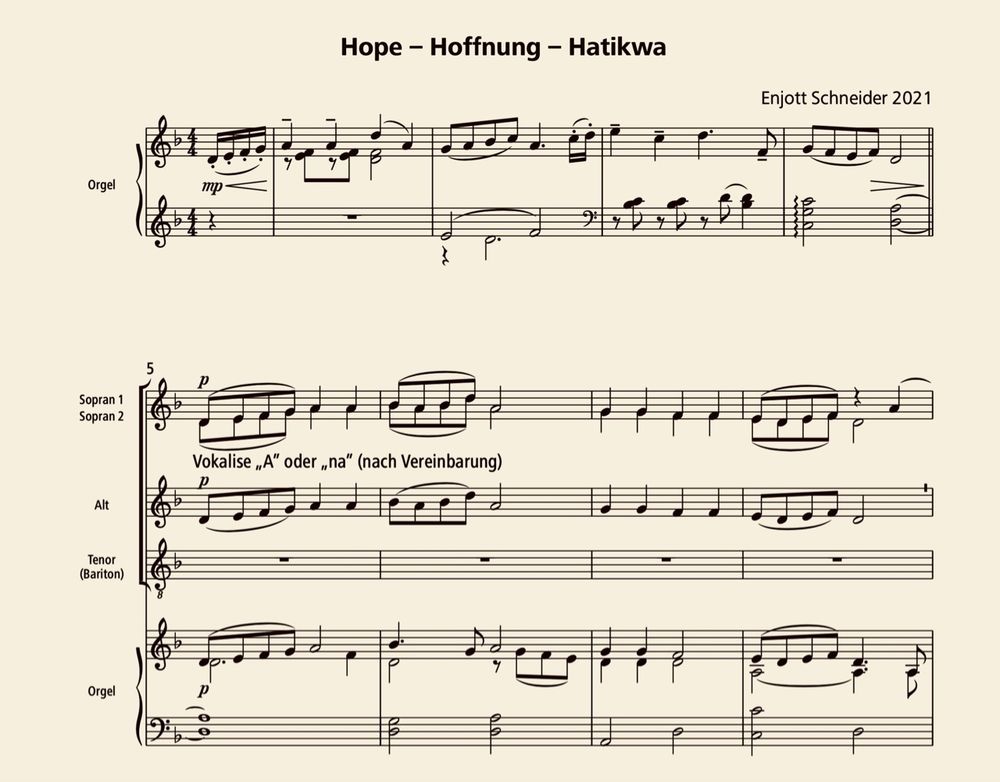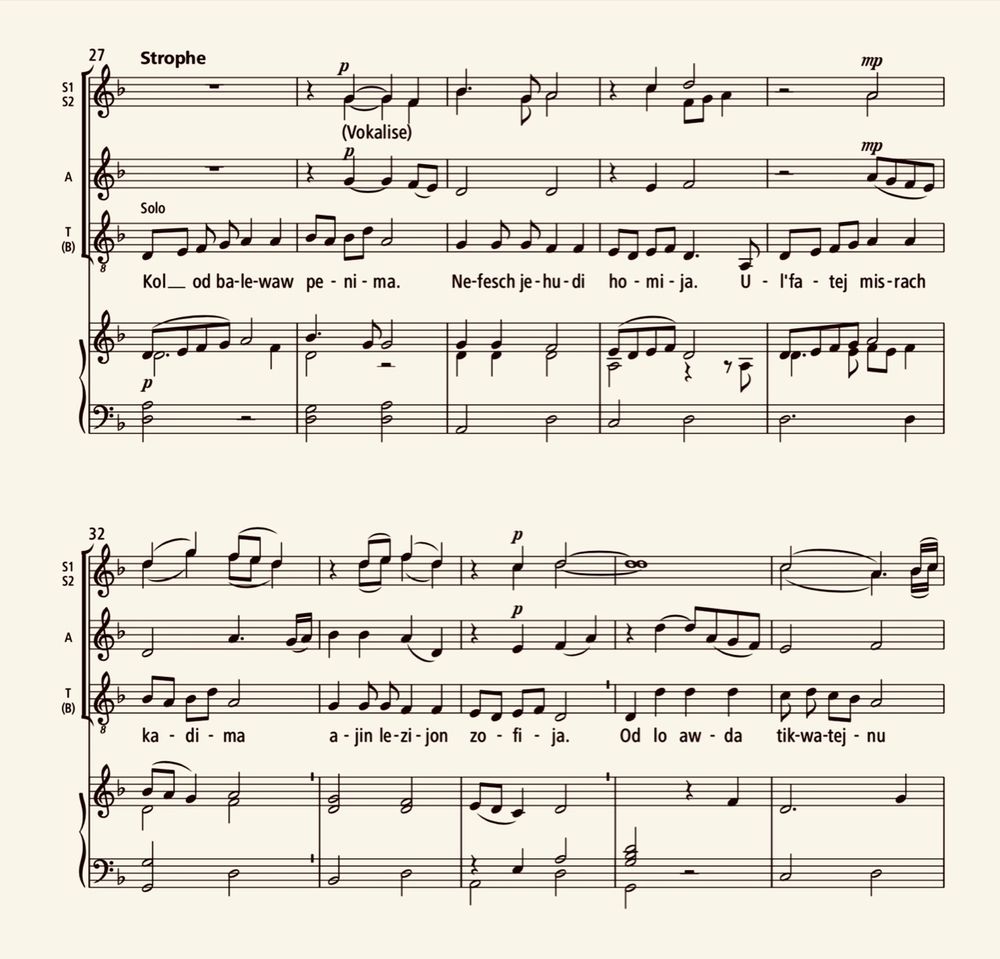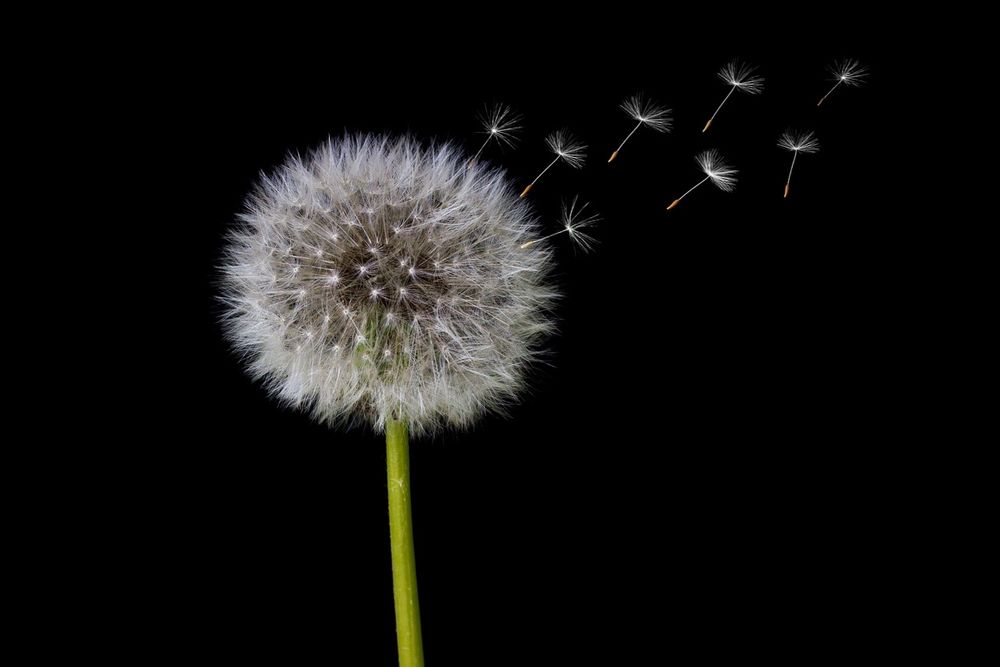
Category: Choir / Vocal , Organ / Sacred Music
One of the great Jewish melodies, which has not only become the national anthem of the State of Israel, but much earlier, as a song of hope, became a musical symbol for the survival of the Holocaust. Here in an atmospheric arrangement for choir (with solo baritone ad lib.) and organ.
Duration: 3 minutes
Publisher of notes/sheet music: Strube-Musikverlag München , VS 4270 , 2021
Instrumentation: choir (soprano 1+2, alto, male voice). Baritone solo ad libitum
Text/Lyrics by: Naphtali Herz Imber (1856-1909)
Introduction: One of the great Jewish melodies, which has not only become the national anthem of the State of Israel, but much earlier, as a song of hope, became a musical symbol for the survival of the Holocaust. Here in an atmospheric arrangement for choir (with solo baritone ad lib.) and organ.
The melody is an old European folk melody (Eastern European, also Spanish, even echoing in the theme of "Moldau"), probably composed by Samuel Cohen in 1888. The present version is sung in Hebrew and vocalises. The text is from the 1878 poem "Tikwatenu" ("Our Hope") by Naphtali Herz Imber (1856-1909).
Commissioned by the parish of St. Sebald Nuremberg for a radio service of the DLF (Deutschlandfunk) on 5 December 2021.
Additional remarks: Text:
Solange noch im Herzen
eine jüdische Seele wohnt
und nach Osten hin, vorwärts,
ein Auge nach Zion blickt,
so lange ist unsere Hoffnung nicht verloren,
die Hoffnung, zweitausend Jahre alt,
zu sein ein freies Volk, in unserem Land,
im Lande Zion und in Jerusalem!
Kol od ba-lewaw penima –
Nefesch jehudi homija
ul'fatej misrach kadima
Ajin le-Zijon zofija.
Od lo awda Tikwatejnu
haTikwa bat schnot Alpajim:
Lihjot am chofschi be-arzenu -
Erez Zijon wi-Jruschalajim.
World premiere: 05.12.2021, St. Sebald Nürnberg
Performers at world premiere: Vokalensemble St. Sebald, conductor: Bernhard Buttmann.
in a broadcasted service by DLF / Deutschlandfunk 5 December 2021
